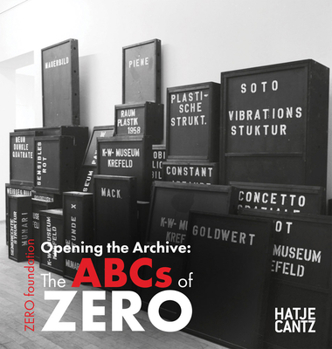Opening the Archive: The ABCs of Zero
Unpublished archival material looking back on one of the most far-reaching avant-garde art movements in mid-century Europe
The ZERO avant-garde movement was founded in D sseldorf in the 1950s by Heinz Mack and Otto Piene, who called it "a zone of silence and pure possibilities for a new beginning." Each traditional concept of art invited a different challenge. Kinetics and light replaced brush and canvas; the studio became the exhibition space, with music playing in the background; books were disseminated with the help of concrete poets. Throughout the '50s and into the 1960s, ZERO took hold in cities across Europe and counted among its ranks artists such as Jean Tinguely, Lucio Fontana and Yves Klein. In The ABCs of ZERO, writers, scholars and authors tell the full story of the movement, from A for atelier to Z for ZERO. A wealth of photos and documents recalls a moment of peaceful utopia in Europe, where society faced the future with a spirit of optimism and creativity.





